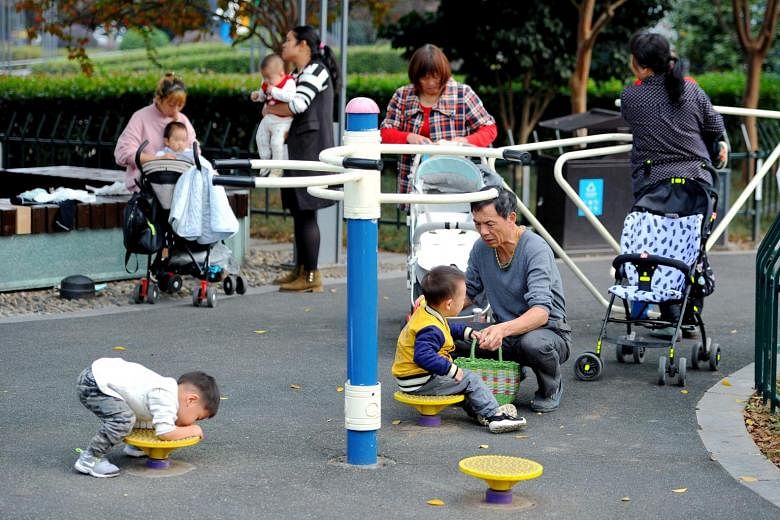BEIJING (CHINA DAILY/ASIA NEWS NETWORK) - A lack of family support and a decrease in career prospects are the top reasons women hold back from having a second child, according to data collected via social media giant Sina Weibo.
Analyses of posts from 2013 and 2018 found that Internet users' discussions about having a second child shifted from concerns over economic costs to mothers' worries of not having enough support from their husband and damage to their career.
In 2013, a typical post would read: "In Shanghai, the birth of a child is followed by further requirements, like a new flat with at least three bedrooms and expensive education expenses, plus care for four parents and a car. It is frightening."
Last year, however, worries about children's health and whether mothers receive sufficient support from their husband became major factors in deciding whether to have a second child.
The Online Social Mentality Survey, conducted by the Centre for Communication and State Governance Research and the Centre for Social Governance Research at Fudan University, was based on 275 million randomly collected posts.
Having a second child has been a hot topic for Internet users, especially after the launch of China's universal second child policy in 2016.
"The Internet, as a platform for people to express their ideas, lays a foundation for social science research on public perspectives through big data analysis," said project team leader Gui Yong, who is a also a researcher from the Centre for Communication and State Governance Research.
Moreover, the analysis found that most netizens agree that women put more effort into raising a second child and wish that men would take more responsibility in taking care of the children.
China reported 15.23 million new births last year, compared with 17.23 million in 2017 and 17.86 million in 2016, according to the National Bureau of Statistics. Of the new births, more than half were second children.
The decrease in births has drawn concerns about the trend being irreversible. The figures lag expectations at the launch of the universal second child policy, which projected at least 20.23 million new births in 2017 and 19.82 million last year.
"The survey reveals some key factors to further improve the implementation of the second child policy in the country, including the reinforcement of family and social support for having a second child," said sociologist Huang Ronggui at Fudan University.
"It embraces related policies about housing prices, education and social security for females," said Associate Professor Huang.

